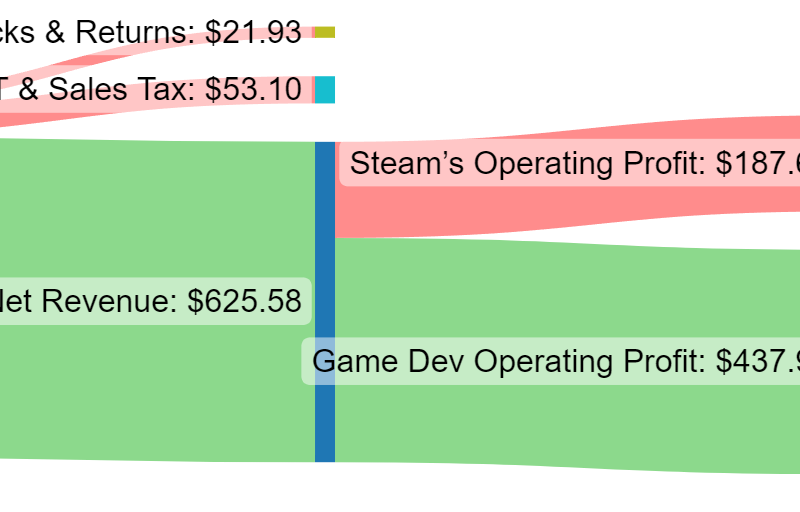Let’s face it…game dev is hard. There is not a shortage of things to do. From development to marketing. To world building to business.
How do you stay motivated? Here’s 6 steps how…
1. Don’t Rely on Motivation
Do not wait until you feel motivated to do game dev. You are not going to feel motivated most of the time.
When you are…awesome! Surf the motivation wave and enjoy the ride. Otherwise, you either feel “normal” or “un-motivated”.
If you feel this way, push through it. You feel this way because you haven’t built up the habit or discipline.
Get started and do one thing. No matter how small.
Open up a game engine. Comment code. Draw art. Write dialogue. Do something.
Anything is better than nothing. Doing nothing will get you nowhere. Doing anything will take you somewhere. Get moving. Then, determine if it’s the right way.
2. Follow Your Passion
Why are you doing game dev? Be honest with yourself. With everything crawling for your attention, why does this peak your interest?
Did any particular games inspire you? Did they leave a strong emotional impact? Curious to learn about games?
What ever it is…write it out. Find that passion that is driving you and follow it.
If you don’t know what that is, what is holding you back from getting into game dev?
This is a great way to understand what is motivating you and also what is not.
3. Focusing on the Process, not the Outcome.
Game dev will be harder and take longer than you think. If you focus on this too much, it’s daunting. However, remember games are the outcome, not the destination. Game dev is a rollercoaster ride filled with enjoyment and frustration.
Focus on enjoying the ride along your game dev journey. Build your skills using a game engine. Fix bugs. Create art. Develop a game mechanic. Enjoy those moments of growth.
These moments build momentum. Reinforce the habit with game dev and increase your motivation.
4. Stay Curious and Keep Learning
There is so much to learn in game dev. You will need to wear many hats (i.e. taking on and balance different specialties and topics, like audio and marketing). Take these moments of uncertainty as an opportunity to stay curious and learn.
Explore a specialty or topic, learn what it is, what makes it tick and how it fits into the larger game dev picture.
Take marketing for example. Why do you need it? You need to figure out if your game fits into the current market. How do you do that? Research what are games are available. Then, understand what motivates players to play those games. Decide if your game would please those players.
Is marketing limited to that? Nope. That’s where the beauty lies. It opens up opportunities ranging from seeing the bigger picture to working on the nitty gritty details. There is a difference between doing a task and doing a task well.
If game dev feels boring, set time aside to learn about that thing that’s been poking your curiosity. It will mix things up and ramp up your motivation.
5. Creative Expression
There is something amazing about bringing your own ideas to life. It creates this internal spark of awe and personal satisfaction.
You are building a game in your own way with your own vision. You are expressing a piece of yourself through a game. Then, sharing it with the world. You should be proud of it. It’s a big accomplishment.
This creative expression in a game is not limited to the visuals like art, vfx, and graphics. It goes beyond that into sfx, music, narrative, story, and even into code and game mechanics.
There are no two games that are exactly alike. It’s freeing to know that we are given a blank digital canvas, we could build anything we want.
Express yourself. Be weird. Be unique. Be you.
Stretch your mental and creative muscles. Explore odd ideas. Take a risk. You’ll never know where it will lead unless you take the leap.
Owning your ideas and your process while remaining true to yourself is enlightening. It builds confidence and motivation to keep doing game dev.
6. Take a Break
Go for a walk. Play a video game. Hanging out with friends. Take a day, week or month off from game dev and your computer.
Why? You are likely burnt out. It means you are overworking yourself over a long period of time. Stress builds with no point of relief.
If you look or even think of your game, does it bring a wave of negative emotions? If so, you are burnt out. Other symptoms include brain fog or no to declining motivation. Your mileage may vary though.
By working in this state of mind, you are doing yourself a disservice. Bugs and features take longer to build. Quality is not as high. May need to redo the work. In the end, you are not hurting yourself, but also the game and your players.
Take a break. Revise your work ethic to develop a sustainable work schedule. Take care of yourself. It will pay dividends for you and your motivation.




